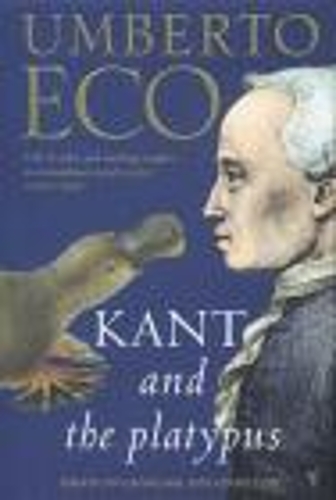
Categorii: Neclasificate
Limba: Engleza
Data publicării: 2000
Editura: Vintage
Tip copertă: Paperback
Nr Pag: 480
ISBN: 9780099276951
Dimensiuni: l: 12.9cm | H: 19cm

How much do our perceptions of things depend on our cognitive ability, and how much on our linguistic resources? Where, and how, do these two questions meet? Umberto Eco undertakes a series of idiosyncratic and typically brilliant explorations, starting from the perceived data of common sense, from which flow an abundance of 'stories' or fables, often with animals as protagonists, to expound a clear critique of Kant, Heidegger and Peirce. And as a beast designed specifically to throw spanners in the works of cognitive theory, the duckbilled platypus naturally takes centre stage.